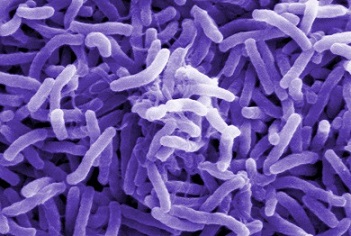Cholera News: Cholera Crisis In Zimbabwe Worsens With Government Declaring A State Of Emergency!
Nikhil Prasad Fact checked by:Thailand Medical News Team Nov 18, 2023 1 year, 5 months, 16 hours, 6 minutes ago
Cholera News: Zimbabwe is grappling with a severe cholera crisis, prompting the government to declare a state of emergency in the capital city of Harare. The outbreak, reminiscent of the devastating 2008 epidemic, has claimed dozens of lives and left more than 7,000 people with suspected cases. As the city authorities struggle to contain the spread, they are urgently seeking assistance to provide safe water and address the overwhelming number of admissions. The situation has raised concerns, drawing parallels to the 2008 crisis that led to thousands of deaths and a significant disruption of basic services.
 Current State of the Cholera Outbreak
Current State of the Cholera Outbreak
Harare, with a population of 1.5 million people, has become the epicenter of the cholera outbreak. According to local
Cholera News reports, the high-density suburb of Kuwadzana accounts for nearly half of the reported cases, reflecting the severity and rapid spread of the disease. The shortage of clean water has exacerbated the situation, with cholera being an acute diarrheal infection caused by consuming contaminated food or water containing the bacterium Vibrio cholerae.
Government's Response and State of Emergency Declaration
Mayor Ian Makone announced the state of emergency in Harare, acknowledging the gravity of the situation. The city authorities are now appealing for international aid to contain the outbreak and provide essential supplies. The health sector is grappling with a shortage of health workers to manage the increasing number of cases and a lack of supplies to prevent transmission. The International Federation of the Red Cross (IFRC) has highlighted the urgent need for support to prevent further escalation.
Comparison to the 2008 Cholera Outbreak
The current cholera outbreak has evoked memories of the 2008 crisis, during which over 4,000 people lost their lives, and at least 100,000 were infected. The severity of the situation in 2008 forced then-President Robert Mugabe into a historic power-sharing deal with his long-time rival, Morgan Tsvangirai. The current mayor of Harare has noted similarities between the two outbreaks, emphasizing the urgent need for a coordinated response to avoid a repeat of the catastrophic consequences experienced over a decade ago.
Health Ministry's Measures and Challenges
As of Tuesday, the Ministry of Health reported 7,398 suspected cases, 50 confirmed deaths, and 109 people hospitalized. The government has implemented measures to address the outbreak, including the removal of street food vendors and the distribution of safe water through trucking. However, challenges persist, with the disease rapidly spreading across multiple geographical areas in 45 out of 62 districts and all 10 provinces of the country. The IFRC warns that the outbreak may cross borders, impacting neighboring countries such as Malawi, South Africa, and Mozambique.
Root Causes and Public Health Concerns
Zimbabwe has been battling the deadly cholera outbreak for several months, primarily due to a lack of access to clean water. The collapse of infrastructure, including water and sanitation facilities, has contr
ibuted to the recurrent nature of cholera outbreaks in Zimbabwean cities. The population's reliance on contaminated water sources, such as wells close to pit latrines, has further exacerbated the crisis. Urgent interventions are needed not only to address the current outbreak but also to implement sustainable measures to prevent future occurrences.
Global Context and United Nations' Warning
The cholera outbreak in Zimbabwe adds to the global resurgence of the disease since 2021, as noted by the United Nations earlier this year. After a decade of steady decline, cholera has reemerged as a significant public health concern. The international community faces the challenge of addressing the resurgence of cholera on a global scale while providing targeted support to countries like Zimbabwe facing acute crises.
Conclusion
Zimbabwe's declaration of a state of emergency in response to the escalating cholera outbreak underscores the severity of the situation and the urgent need for international assistance. The parallels drawn between the current crisis and the 2008 epidemic highlight the persistent challenges facing the country's health infrastructure. As the government, aid organizations, and the international community mobilize to contain the outbreak, it is essential to address the root causes of the recurring cholera outbreaks and implement sustainable solutions to safeguard public health in the long term.
For the latest
Cholera News updates, keep on logging to Thailand Medical News.
